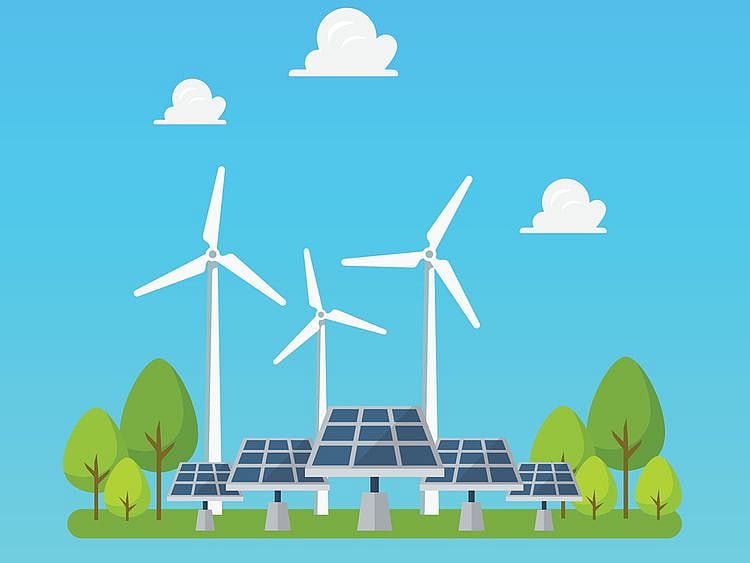The COP28 climate summit in Dubai concluded with a deal that signals a significant shift in addressing fossil fuels, the primary cause of the climate crisis.
This historic agreement recognises the need for rapid reductions in greenhouse gas emissions and calls for a transition away from fossil fuels in energy systems by 2050, aligning with the 1.5 °C pathway of the Paris Agreement.
The march towards a green transition is seen as a beacon of hope in this time of extreme climate crisis. Renewables are a significant focus, with the new climate agreement calling for tripling renewable energy capacity and doubling energy efficiency improvements by 2030.
The Intergovernmental Panel on Climate Change (IPCC) and UN Secretary-General Antonio Guterres have underscored the critical need for this transition. Yet, beneath the surface of this ostensibly straightforward solution lie complexities and significant problems.
As economies move away from fossil fuels, there is a risk of job losses in traditional energy sectors like coal, oil, and gas. This transition can have significant socioeconomic impacts, especially in regions and peoples heavily dependent on fossil fuel economies.
Also Read
Why the success of COP28 is of utmost importanceTurbulent road to Jan 7 in BangladeshCOP28: Why nation states are key to climate governance Climate crossroads at COP28: Urgent action needed amid rising disparitiesWiden existing inequalities
Moreover, the costs associated with the green transition, such as higher energy prices or the need for new infrastructure, can disproportionately affect lower-income households, communities, and countries. There’s a risk that the transition could widen existing inequalities if not managed carefully.
Renewable energy sources are primarily intermittent, meaning they don’t produce energy all the time. This variability can lead to challenges in maintaining a consistent and reliable energy supply, necessitating the development of advanced energy storage solutions and grid management technologies.
While renewable energy sources are cleaner than fossil fuels, they still have an environmental footprint. The manufacturing, transportation, and disposal of renewable energy systems can contribute to pollution and waste.
Moreover, the shift from fossil fuels to renewable energies involves a significant increase in the demand for mined metals, raising concerns about new dependencies.
Solar panel production involves mining various components, and their installation can lead to land use conflicts, habitat destruction, and water pollution. Wind power faces similar challenges, including negative impacts on wildlife and the need for large land areas.
Hydroelectric power also has significant social and environmental impacts during the construction and operation, including the displacement of communities and disruption of natural watercourses. An estimated 80 million people have already been displaced by dam projects worldwide.
Nearly 80 per cent of Sweden’s impressive hydropower infrastructure that provides nearly half of the country’s electricity is located on indigenous people’s land.
Green-transition-mining
Besides large dams, mega solar parks, and big wind turbines this green transition also focuses heavily on renewable energy technologies like electric vehicles (EVs). The International Energy Agency (IEA) 2021 report states that the demand for critical minerals will increase significantly due to the growth of these clean energy technologies.
The material requirements for this transition are immense. Globally, replacing 1.4 billion engine vehicles would require vast amounts of cobalt, lithium carbonate, neodymium, dysprosium, and copper.
The extraction of these materials often leads to environmental destruction, biodiversity loss, displacement of communities, exposure to armed conflicts, and health and economic vulnerabilities.
The mining usually leads to exploitation and the displacement of local communities. In the DRC, for example, cobalt mining involves child labour and is controlled by armed groups, causing widespread violence and instability.
In Baotou, China, rare earth mining has created a toxic lake, contributing to severe air pollution and landscape degradation. Similarly, in Southeast Asia, the processing of these minerals has led to significant environmental damage and CO2 emissions.
The overenthusiastic race for this ‘green-transition-mining’ has become a significant concern. The controversial lithium mining in Northern Portugal, driven by a projected 1500% increase in global demand by 2050, is advancing under the guise of a ‘green transition.’ This project exacerbates depletion, segregation, and exclusion in parts of the country.
Mistakes in future sustainability
Additionally, the pursuit of carbon-free mining techniques and the extraction of rare earth elements, essential for green transition technologies, are transforming the landscape and impacting indigenous cultures in the Arctic region of Sweden.
Ironically, the quest for a sustainable future is leading to the destruction of some of the last natural refuges in northern Europe and the erosion of indigenous cultures.
Moving towards more sustainable practices and the use of green technologies is important, but we must not ignore the murkier aspects of these transitions. The complex nature of green transitions often involves changes in rules, norms, infrastructure, and socio-technical systems, which can sometimes have unintended negative consequences.
For example, while the creation of national parks is widely celebrated, their establishment has often ignored the rights of and displaced forest people and indigenous communities.
Learning from the past to avoid repeating similar mistakes in future sustainability efforts is essential. While addressing climate change and biodiversity loss is crucial, it is equally important to ensure that these transitions do not replicate past injustices. The goal has to be to create equitable systems and ensure that change is inclusive and participatory.
The planet needs a holistic approach and that involves adopting responsible mining practices, implementing strong environmental, social, and governance policies, and ensuring greater transparency. It is absolutely necessary to ensure that the transition to a green economy does not exacerbate environmental and social injustices.
The green transition should not be about replacing one destructive system with another but about fundamentally rethinking our relationship with the planet.
Network Links
GN StoreDownload our app
© Al Nisr Publishing LLC 2026. All rights reserved.
